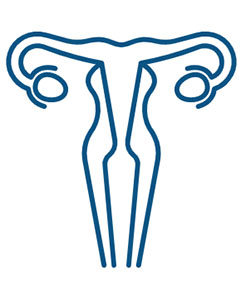Royal Research Corp
Royal Research, Corp specializes in conducting Clinical Trials Phases I through IV. Our goal is to assist our healthcare industry by conducting medical studies to discover and develop investigational medication, procedures, treatments and devices to improve the quality of life around the world.
We have made our research facility comfortable for all of our participants putting their health and safety first. Our bilingual, highly trained, certified and dedicated medical research staff provides exceptional research services and adheres to the highest standards of clinical research.

Our Research
Our purposeful approach to finding cures of the most notorious diseases in Podiatry, Nephrology, Internal Medicine, Ophthalmology, Vascular and Dentistry among other disciplines of medicine, through principled research has made us a name to reckon with. We conduct several hundred trials in these areas with dedicated teams. Our research is backed by path-breaking groundwork and several decades of cumulative research experience. Our Clinical Scientists are on a mission to improve the quality of human lives living with these diseases. Our support staff is certified, top of the class personnel aligned to assist you with even most basic requirements and queries. We count on innovation to cure the world’s diseases and on You to bring these innovations to the world. Let’s transform healthcare one research at a time.

List of Featured Clinical Trials

Podiatry
Diabetic foot ulcer, Venous leg ulcer, Onychomycosis, Plantar fasciitis

Endocrinology
Hormones

Nephrology
Treatment of kidney disease

Gynecology
Bacterial vaginosis, Genital wars

Dermatology
Atopic dermatitis, Psoriasis, Wars

Mental Health
Mayor Depressive disorder, Anxiety, Bipolar disorder


Participating in a Trial
Our path-breaking research is backed by decades of cumulative experience and makes us a name to reckon with. We conduct several hundred trials throughout various disciplines including Podiatry, Nephrology Internal Medicine Ophthalmology Vascular Dentistry among others which entail cures for some of the most notorious diseases in all these fields because our scientists strive towards improving quality human life living with them.
Check out our Sponsors
Our premium research facility in South Florida reaches out to the diverse population of Miami and Fort Lauderdale. Home to world class specialists and highly trained staff, our facility, allows us to focus our work on bespoke research studies. We are therefore able to accelerate discovery, deliver accurate results and facilitate an early go-to market.
Our partners are some of the most reliable names in the pharmaceutical industry and medical technology trust us to transform healing and advance medicine throughout the world. Join Royal Research Corp. in order to launch the most potent health care instruments into the world.

Clinical trials are research studies done to find out if a treatment can improve people’s health. A treatment a can be a drug, medical device, medical procedure, or a change in a person’s behavior such as diet or exercise. People who take part in clinical trials are volunteers. They may also be called “participants” or “subjects.”
The health of millions of people has been improved because of advances in medical care, made possible by clinical trial participants. People choose to participate in clinical trials for a variety of reasons, including the chance to play a more active role in their own health care, gain access to new medical treatments before they are available to the wider public, and help others by contributing to the future of medical science.
A healthy volunteer is someone with no known or no significant health problems who participates in a clinical trial. a Healthy volunteers are needed to participate in early phase studies to understand how a potential medicine works in the body. In addition, healthy volunteers are sometimes needed to help define the limits of “normal” and act as a “comparison” group to patients with the disease being studied.
A protocol is a study plan on which the clinical trial is based. The plan details what researchers will do in the study and is designed to safeguard the well-being of the participants and to help answer specific research questions. A protocol will outline what types of people may or may not participate in the trial; the schedule of tests, procedures, medications, and dosages to be administered; the measurements to evaluate the effect of an intervention on participants; and the length of the study.
All clinical trials have rules about who can and cannot participate. These rules are called “eligibility criteria” but may also be referred to as inclusion/exclusion criteria. The criteria are based on factors such as age, gender, the type and stage of a disease, previous treatment history, and other medical conditions. The eligibility criteria define the patient population that IS being studied and are designed to protect the safety of participants in the trial. Because of the criteria, not everyone will qualify to participate in the trial.
Yes. Clinical trial participants have the right to change their minds at any time even after they have started the clinical trial or at any time during the trial. It is important to contact the clinical trial site and inform the research team of a decision to stop participating to make sure steps are taken to safely transition a participant back to their previous care.
Placebos are inactive substances. In a clinical trial a placebo, made to look like the investigational treatment, is sometimes used as a comparator to the actual investigational treatment. The placebo effect is the real, or apparent, improvement in a patient’s condition that results from the patient hoping to see a better outcome. To help eliminate this problem, participants are randomly assigned to receive the investigational treatment or placebo and blinding is used so that participants do not know which treatments have been assigned to them.
The role of personal insurance can vary by region and by trial and will be discussed with each participant before they enroll in a trial.
The length of a clinical trial varies depending on several factors, such as the type of illness and the type of medicine being researched.4 For example, if the study is researching a treatment for a chronic condition, participants’ progress on the trial may be tracked over a relatively long period of time. Studies of antibiotics on the other-hand conclude quickly as patients are typically treated on study for a few days only.
Yes, a payment varies from trial to trial. In general, patients are not paid for participating, but expenses may be covered. However, there are times when payments may be made for participating, particularly for Phase I trials. The research team will clearly outline compensation that will be provided during the informed consent process. It is also important for a potential trial participant to ask the research team about payment for expenses or indirect costs of participating in a trial, such as a time away from work, travel to and from the research site, child care coverage during study appointments, etc.


